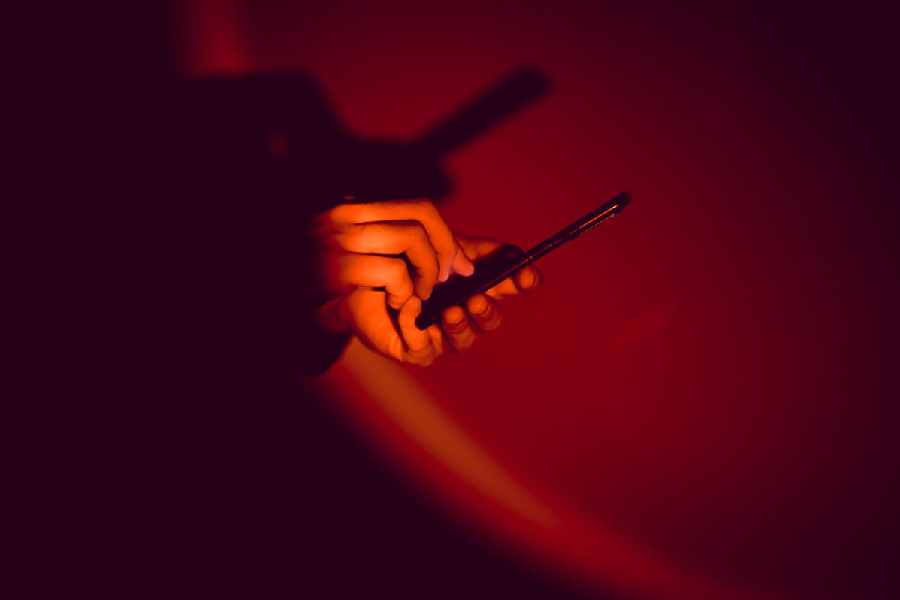I accidentally swiped right on my phone and saw that I had spent 10 hours and 37 minutes actively using it through a single day. I was dismayed. I knew I spent more time than I should scrolling through social media apps, but more than ten hours? If you take seven hours away for sleep (eight hours at my age is an unreal prescription) and, say, two hours for making, eating and clearing away three meals, that left four and a half hours for the actual business of living, as in talking to other people, exercising, travelling in a ‘mindful’ way, reading a paper book or a newspaper or working to write, make or produce something.
This addiction is particularly insidious if you don’t have to clock into work every day, as I don’t, having retired three years ago from the routines of university life. Notice that I haven’t included in my calculation the time I spend trying to write on my computer or the time used up watching shows and movies on OTT platforms like Netflix on television. So that ten-plus figure is not the sum of daily screen time, just the time spent literally looking at my phone screen or listening to a podcast being streamed via the device. When I tried to reckon total screen time, I came to the appalling conclusion that there were days when my entire waking life was spent in slack-jawed thrall to digital devices.
Is this a bad thing? Being remotely in touch with people you do and don’t know at the flick of a thumb is interesting. If it weren’t, millions of us wouldn’t be on WhatsApp and Twitter catching up with friends elsewhere or strangers that we’re stalking for perfectly good reasons. I can see that self-flagellation about phone use can be a Boomer thing, where people closing in on seventy look back nostalgically at the time they queued up in nationalised banks holding metal tokens the point of which escapes them now. I oppress my children with tales about trunk calls that took hours to schedule but have now been transmuted by time into lore from a golden age where people were present for each other, where friends made eye contact and real men found their way to untravelled places without Google Maps.
Even allowing for age, though, there is something odd about the deliberate, ostentatious blindness to the immediate physical environment cultivated by continuous mobile phone use. When I hear of phones being snatched on the streets of London from absent-minded travellers, it seems less like theft and
more like a cosmic bid to retrieve these absent-minded browsers from the ether and jolt them back to their here and now.
My daughter, who is a Millenial, tells me that members of the next generation, Gen Z, are noted for their impassive, affect-less stares in ordinary conversation. The faces that earlier generations pulled to indicate attentiveness, acknowledgment or awareness have been replaced by an inexpressive blankness that comes naturally to digital natives because their attention is reserved for the online world. Offline interaction in
what passes for the real world is so arbitrary and unchosen that it isn’t worth their while to act interested. The pay-offs of the ‘attention economy’ (which sadly is a thing) are exclusive to the online world. You don’t even have to be a Gen Z-er to know that. Ever counted up the ticks and hearts under your Facebook posts? Of course you have.
Because mobile phones are portable in a way that tablets and laptops aren’t, they’ve become our portals into the world that we’ve curated for ourselves, a world that fits like a glove in a way that the random real world never does. One of the principal uses of the cell phone is as a social prop in unfamiliar places. With a phone, you need never seem alone or isolated. The awkwardness involved in negotiating social spaces where you know no one and lack the savoir faire to strike up conversation with strangers need never plague you again; you can just stare purposefully at your phone. You might be opting out of the challenge of sociability but at least you don’t have to just hang around looking isolated and alone. In an unequal world where social capital is determined by class, caste, credentials and location, the mobile phone offers a virtual refuge.
The seduction of a full life online as opposed to a mean, circumscribed existence in the real world can be irresistible. The fact that much of it is vicarious, not tactile or ‘real’, doesn’t matter. There’s a reason why incels are obsessively online. Men are overwhelmingly the principal audience for online pornography. The ability to live vicarious, alpha male sexual lives, herded around misogynistic influencers who vindicate incel resentment at being rejected by women, supplies a community of sorts to terminally isolated men.
But it’s useful to remember that incels live on the outer limits of a spectrum that all of us inhabit. This displacement of consciousness from the material world our bodies inhabit to this world-encompassing ether now defines our everyday lives. I experimented with leaving my phone behind when I visited a library that I often use as a place to write in. This meant carrying cash to pay for transport and not using Uber. It also meant not using the library’s Wi-Fi connection because I needed an OTP for logging in. It meant not knowing when the Amazon delivery would happen, and most of all it meant being cut off from the WhatsApp messages from service providers who make urban life possible.
As it happened, my day went well. I wrote with concentration because there were no online distractions. The auto I hailed was cheaper than my daily Uber and telling the driver the way home was no harder than it had been before taxi apps became common. There was a strange peace in the absence of ringtones and jangling vibration. But I can’t see myself doing this every day.
I had two friends my age who didn’t use smartphones. I first admired their resolve and then grew to think of them as merely perverse. They both use smartphones now, so I suppose I was right. To do without a mobile phone is to withdraw from the world. It’s a modern take on renunciation. It can be done in a therapeutic way, like checking into an ashram for a ten-day spell of inward, non-speaking meditation as a holiday from your necessarily online existence.
I was once persuaded to buy a bunch of shares. They didn’t cost much but they did grow into a nest egg. I was then told that I had to demat them, literally dematerialise the share certificates into a special kind of trading account. Once I had done that, those impressively stamped paper shares became worthless. Modern life is a kind of purgatory where our lives have been dematerialised but they remain anchored to gross bodies stuck in the material world. We’re haunted.
mukulkesavan@hotmail.com










